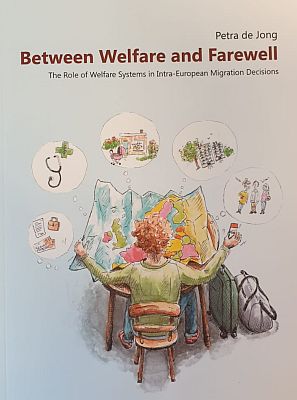Services welfare state not a magnet for migration within Europe

Most EU migrants move to another country during life stages in which they are not or hardly dependent on the welfare state. Therefore, there is little evidence that the level of social services in the country of destination is an important motivation for migration between European countries. This concludes Petra de Jong in her dissertation Between Welfare and Farewell. The Role of Welfare Systems in Intra-European Migration Decisions.
Social rights of EU migrants, like those of non-migrants, are usually built up over time and are therefore dependent on length of stay and / or paid contributions. De Jong concludes that many EU migrants move in life stages when they are least reliant on welfare state arrangements, and often leave the host country before gaining full access to its welfare system.
Her findings nuance the public debate in society and politics that with the disappearance of border restrictions within the EU the pressure on the welfare state has increased. The influence of welfare states on migration decisions appears to be much more complex than a general 'magnet' effect and is related to the (temporary) role of the welfare state in the lives of individuals. Care-state arrangements seem to be of particular importance in the migration decisions of small groups of more vulnerable people, such as families with children and elderly people.
This means that care-state arrangements are not an important reason for migrating. However, social services can make intra-European migration possible if they offer protection against the uncertainty and the risks that come with migrating. In the absence of the safety net that a welfare state offers, even young, highly educated individuals were less willing to migrate, concludes De Jong. Measures that restrict access to social security for EU migrants therefore appear to run counter to the European Commission's objectives of strengthening mobility and encouraging the recruitment of highly skilled migrants in aging European societies.
Insight into who is migrating and how the welfare states in the countries of origin and destination influence the lives of these individuals is more important than a focus on the number of immigrants, says De Jong. In particular, the welfare state arrangements in the country of residence influence the migration decisions. Whereas earlier research mainly focused on the improving functioning of the welfare state in the country of destination, De Jong's thesis emphasizes the importance of social services in the country of origin.
Petrda de Jong defends her PhD thesis on January 17th
More news
-
01 December 2025
The power of movement


